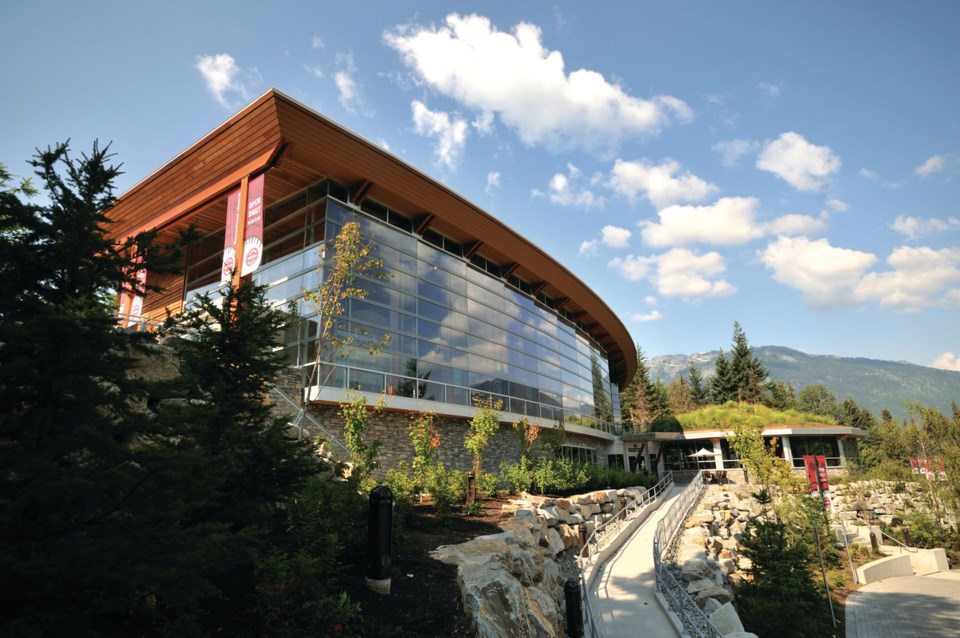Staff at the Squamish Lil’wat Cultural Centre (SLCC) are focused on healing after a hate-speech incident on Sunday, Oct. 11.
That day, a man walked into the Whistler museum with the alleged intention of instigating an altercation, staff said.
“They were there for the purpose of hurting our staff,” claimed Heather Paul, executive director of the SLCC. “Without repeating what they said, it is a criminal offence, what they said. It was hate speech supporting the loss of life of Indigenous people.”
The incident was reported to Whistler RCMP and is currently under investigation.
While it’s not the first racist incident at the facility, it was the most aggressive, said Mixalhítsa7 Alison Pascal, curator at the SLCC. “Sometimes it takes our staff a long time to heal from it,” she said. “So right now, as an organization, as a family, especially since we have a really youthful staff, everybody is just really taking this time to heal and re-centre themselves and prepare to welcome more people into our doors and continue that work in a really good way, a pure way that’s not tainted by this experience.”
Many people in the community reached out after learning about the incident to offer support, express shock, and, for some, renew memberships.
However, SLCC staff and cultural leaders were not surprised at the alleged verbal attack. “There was no shock it occurred,” Paul said. “[There was] shock of it occurring in the moment, but [that’s the] divide between non-Indigenous people being flabbergasted this is occurring, and Indigenous people saying, ‘It has happened before and I wait for it to happen again. I go to work wondering if it will happen today.’ Somewhere in that divide is the work that needs to be done.”
Pascal speculated that the recent incident might also have been compounded by the high number of women working at the SLCC.
“We’ve always been heavily staffed by females, which is really interesting,” she said. “On [that day], we were heavily staffed by females. Male aggression towards females also plays a role.”
Looking ahead, the SLCC will examine how they handle both aggressive visitors and those who use micro-aggression, Paul said.
But there are ways the wider community can help combat racism with a goal of reconciliation, too. “Educating yourself is a really great start,” Pascal said. “The Whistler library runs a program talking about Indigenous people; it’s an online model. I believe it’s no charge or very little charge for those people who didn’t have Indigenous studies or First Nations studies in school. They can learn a little bit more about our history.”
(More information on that can be found here: whistlerlibrary.ca/events/mooc-indigenous-canada.)
One of the most valuable ways you can help is to start conversations at home as well, added Pascal.
“The first place to have these conversations, and talk to your family members who might hold onto stereotypes really hard or might be judgmental about what they’ve seen in the media, [is] at home where you’re not worried about onlookers, or changing people’s perceptions or putting them on defense in public,” she said. “For me, that’s where a lot of the big topics are discussed in my family. We all share our opinions and if we have more knowledge about a subject, it comes out.”
Paul also suggested locals support Indigenous businesses. “Let your dollar by your ally-ship,” she said. “Do you have a membership to the SLCC? Are you exercising it? When you’re purchasing Indigenous art, are you buying it from an Indigenous business? The shop here is an Indigenous business. The money goes back into Indigenous businesses. This building is owned and shared by the Lil’wat and Squamish Nations.”
To that end, the SLCC is also looking at curating Indigenous reading material for people to purchase if they’d like to further educate themselves.
“We’re looking at … creating First Nations 101 baskets,” Paul said. “It will be reading material, reference material. We have some of those books in the store, but we’re bringing more in.”
But it’s also important to remember the SLCC isn’t just a place of education; it’s also where Indigenous culture is celebrated.
“Your journey to reconciliation can, the next time you come in for a celebration, morph into a realization,” Paul said.
In the meantime, police continue to investigate the incident. They hope to identify the person and ask anyone with information to call them at 604-932-3044 or call Crime Stoppers at 1-800-222-8477 to remain anonymous.




